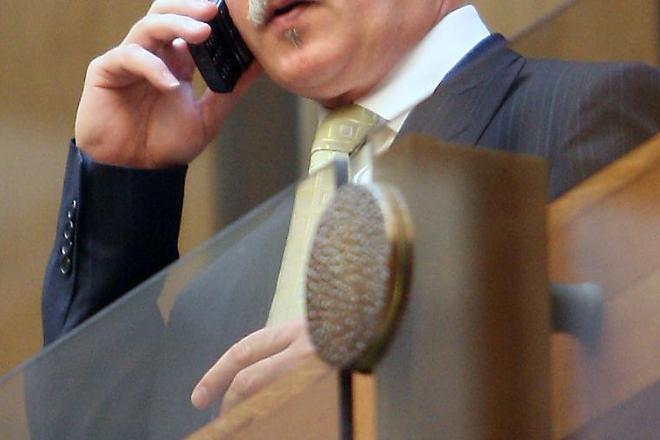The investigator of the National Criminal Agency (NAKA) has finished the investigation of the so-called bulletin-board tender. He also proposed to charge five people with violating their duties when administering someone else’s property, abusing the powers of a public official, and manipulating the public procurement and public auction, the TASR newswire reported.
The charged people were only identified as Marián J., Igor Š., Radoslav B., Tomáš L. and Zdenka K.
The scandal dates back to 2007. It involved the announcement of a €120 million competition for supplying the then-Construction Ministry with various legal and advertising services co-financed by EU funds. The call for applicants was placed only on a bulletin board in a corridor at the ministry, then under the remit of the Slovak National Party (SNS). The tender was won by the only bidder in the tender, a consortium of companies including Zamedia and Avocat, both businesses with links to the then-SNS party leader Ján Slota.
The scandal resulted in the sacking of two SNS ministers, Marián Janušek and Igor Štefanov.

The state later had to repay Brussels the money spent on the project. After the doubts cast on the tender by media reports, auditors from the Public Procurement Office and the Supreme Audit Office were sent to the ministry to clarify the details. Both offices had found serious errors made by the ministry in the controversial tender.
With their conduct, they caused damage amounting to more than €97 million, Police Corps Presidium spokesperson Michal Slivka said. The damage to the state budget amounted to nearly €13 million, he added, as reported by TASR.
The police also say that the individuals charged created conditions tailored to suit one bidder selected in advance. This should be proved by the fact that the information about the competition was published only on one unmarked bulletin board at the ministry, in a closed corridor.
They subsequently sent the offer to three companies, but in the end only one bid was submitted. The ministry evaluated it as successful, though it did not meet the legal conditions and it was to be excluded from the competition, the SITA newswire reported.
The agreement costing €97 million was signed only one day after announcing the results. The contract also allowed the winner to increase the final sum via additional costs, SITA wrote.
Between June 2007 and April 2009, the state paid more than €12.7 million to the winning firm. The rest was not paid as the government ordered the Construction Ministry to terminate the agreement.



 Ex-minister Marian Janušek (source: SME - Pavol Funtál)
Ex-minister Marian Janušek (source: SME - Pavol Funtál)